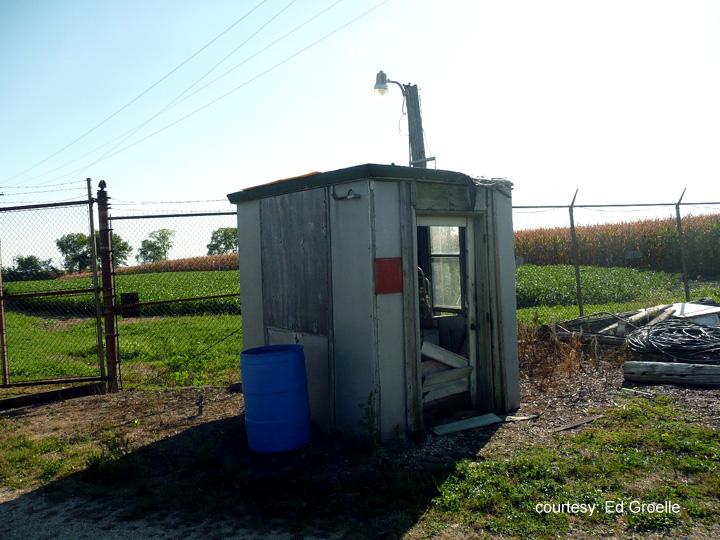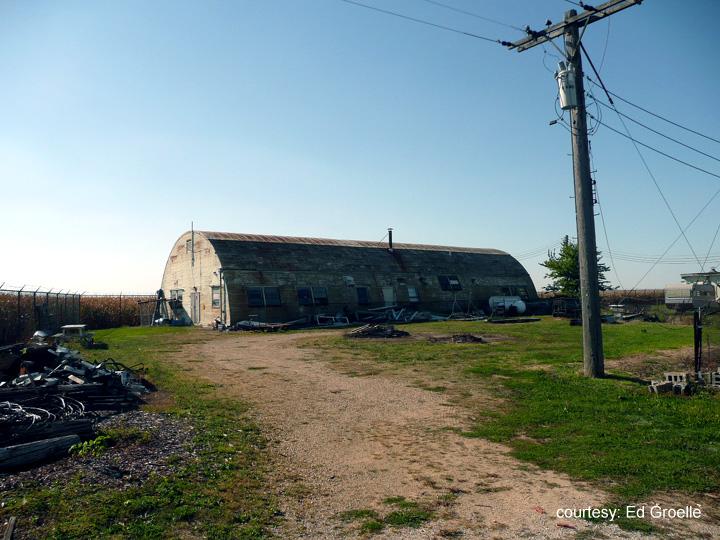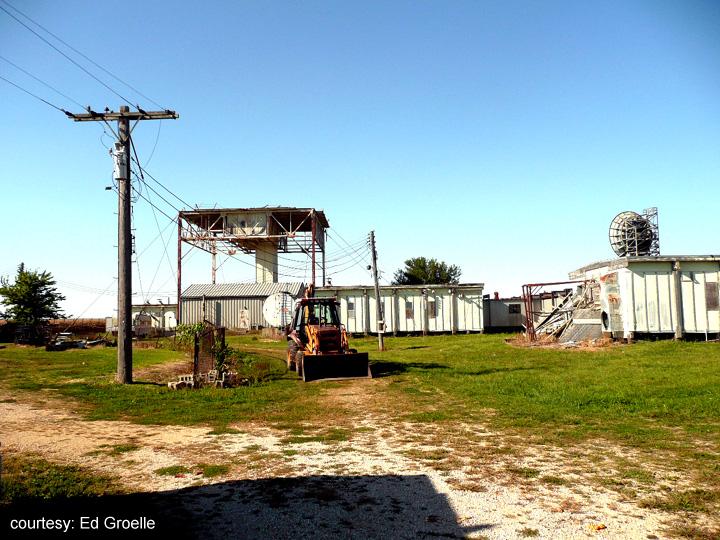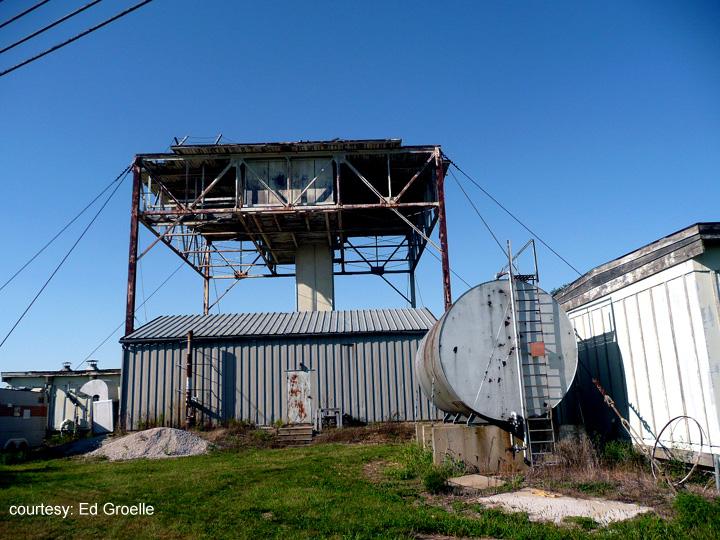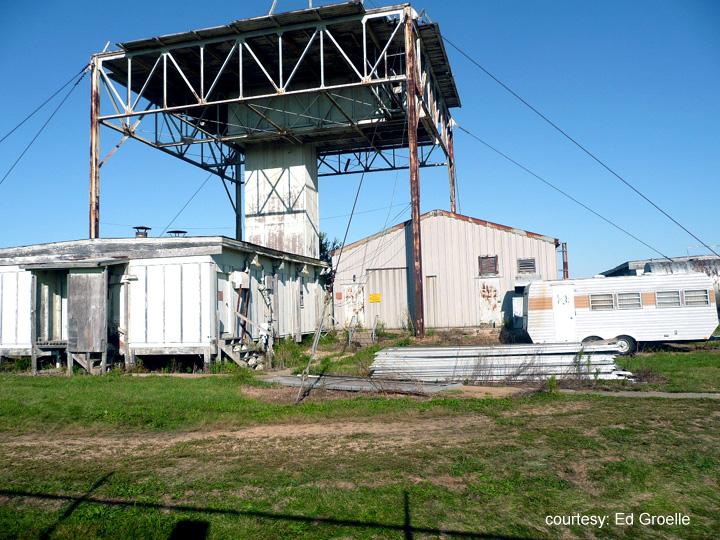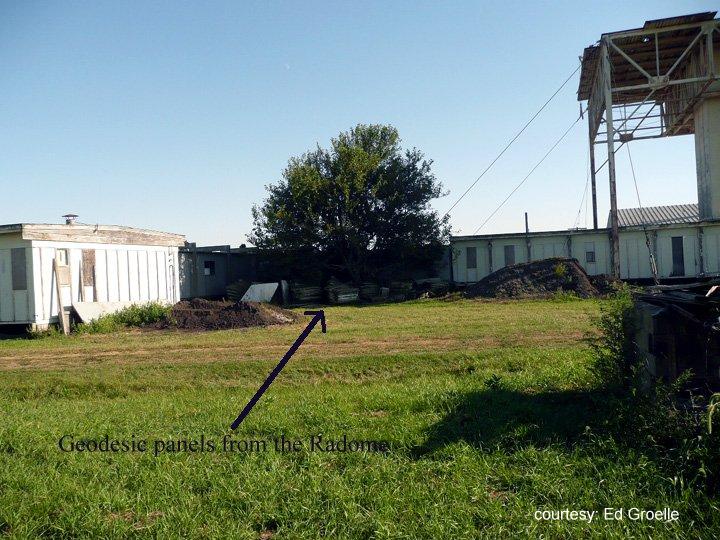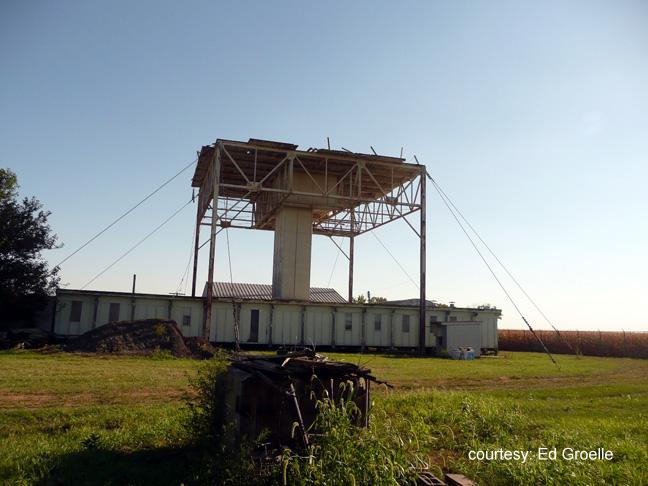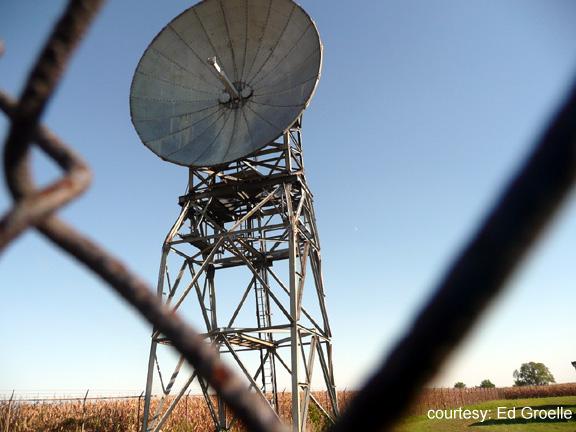Streator, Illinois
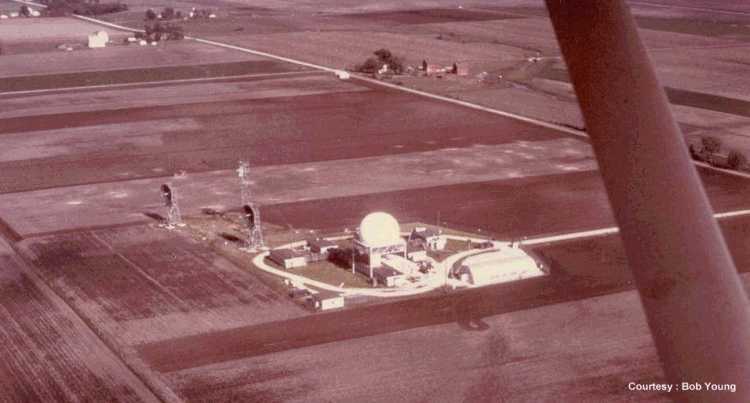
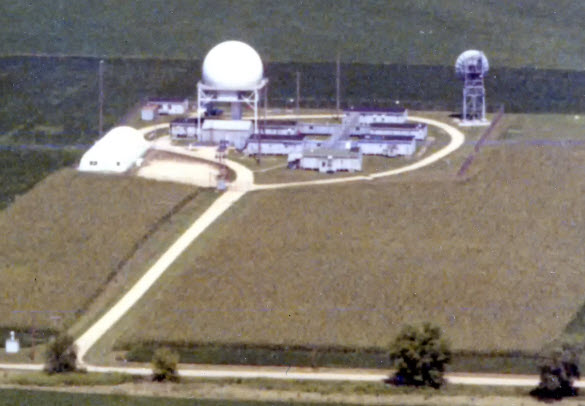
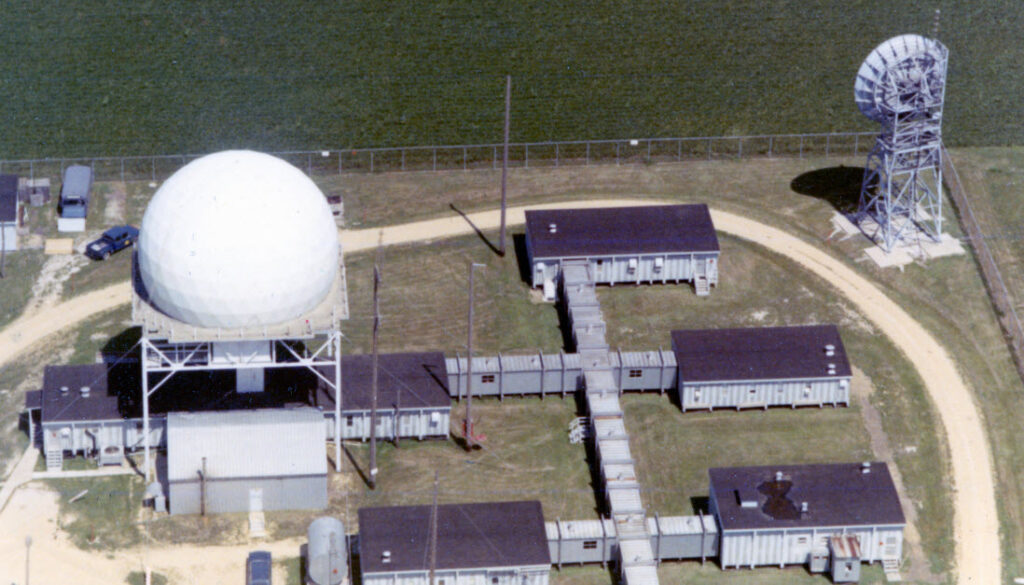
History:
This station was built in 1952/53 as a prototype of the stations that would become the Distant Early Warning (DEW) Line. In 1956, with completion of the line nearing, its role changed to that of a training facility for the personnel that would man the stations in the Arctic.
For what is probably the definitive history of the Streator DEWLine training facility relative to the transitions from Streator to Colorado Springs, to Winnipeg see “The Evolution of the DEWLine Training Centers Streator and Beyond.”
The Streator site is now abandoned and derelict (see photo below and at the bottom of the page).
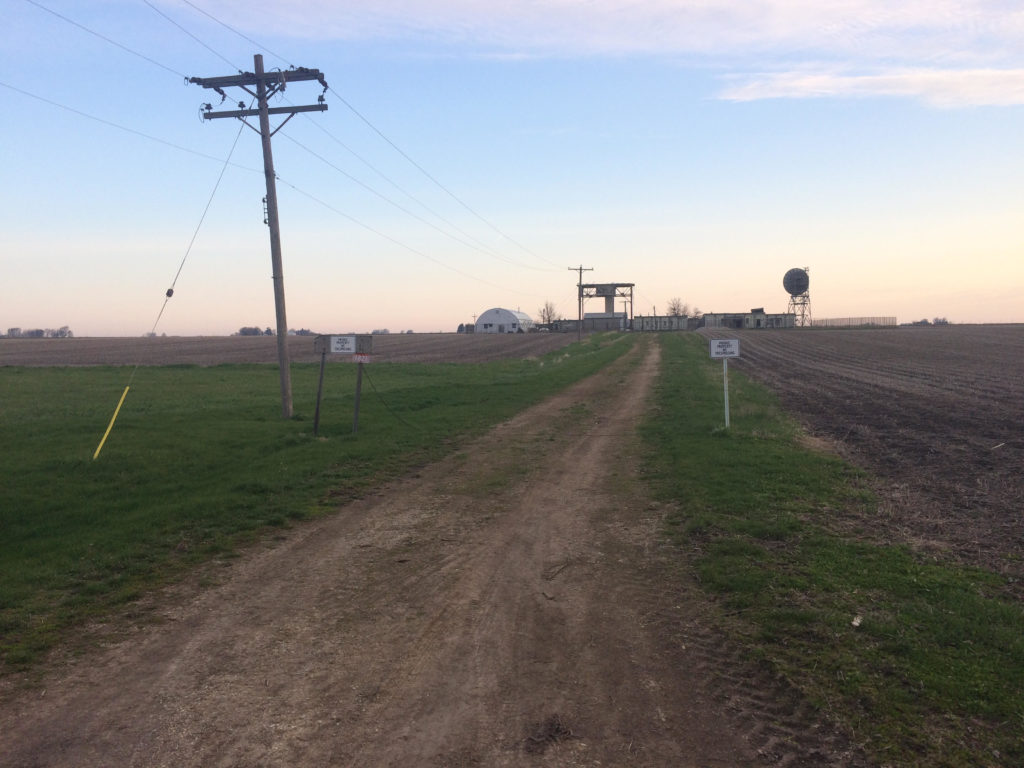
Site Layout:
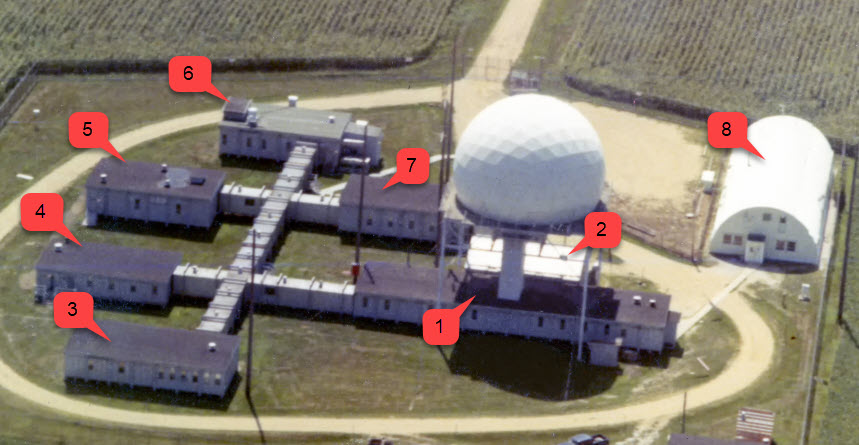
Building descriptions, thanks to Paul Kelley and Dave Hrasch. (Numbers below correspond to the photo above.)
- Building #1. Electronics Module containing the radar and other electronic equipment that would be found on a typical DEWLine station.
- Building #2. Power Plant.
- Building #3. Communications lab/classroom containing VHF/UHF A/G equipment, HF receivers, NDB, VO-38, etc.
- Building #4. Meteorological (Weather) classroom, the first module of the training syllabus.
- Building #5. Communications Centre classroom containing TTY equipment. Used for Operations training.
- Building #6. Transmitter building. Identified by Dave Hrasch.
- Building #7. Logistics/supply building. Identified by Dave Hrasch.
- Building #8. Quonset Hut, containing several classrooms, administrative offices, and a “Mess Hall” with vending machines.
The Training Syllabus
Radician Paul Kelley remembers the training syllabus in 1960-61 as being:
- Week 1: Intro to the DEW Line. Arctic survival. Weather course.
- Week 2: Weather course and Electronic review.
- Week 3: Electronic review continued and Communications I.
Syllabus:
-General Electric VO-38W VHF Fixed Transceiver
-AN/VRC-19 VHF Vehicular Transceiver
-Collins 242F3 VHF air/ground Transmitter
-Collins 51M7 VHF air/ground Receiver
-AN/GRT-3 UHF air/ground Transmitter
-AN/URR-35D UHF air/ground Receiver - Week 4: Communications I continued.
Syllabus:
-AN/FRT-37, Wilcox 99C LF Beacon
-Collins 51N2B HF Receiver
-Marconi TR100/6 Emergency HF Transceiver
-Collins 431B1 HF Multi-band Transmitter
Collins 51J4 HF Receiver - Week 5: Communications II.
Syllabus:
-Lenkurt AN/FRC-45 (Theory) - Week 6: Communications III.
Syllabus:
-Lenkurt AN/FRC-45 (Theory & Practical) - Week 7: Surveillance I.
Syllabus:
-AN/FPS-19 Radar (Theory & Practical) - Week 8: Surveillance II.
Syllabus:
-AN/FPS-19 Radar, plus MK-10 IFF (Theory & Practical) - Week 9: Surveillance III.
Syllabus:
-AN/FPS-23 Doppler Radar (Theory & Practical) - Week 10: Operations and First Aid.
- Week 11: Operations.
- Week 12: Operations.
- Week 13: IS-101, Teletype training for some Canadians Radicians and Crypto training for American Radicians.
There were weekly exams and failing any one was grounds for possible dismissal. Failing any two meant being washed out and sent home at your own expense.
The training site was finally closed in 1975, and training operations were moved to Colorado and then to Winnipeg.
The following description was extracted & edited from a long-lost document on the Radomes.Org website.
Perhaps the one of the biggest “secret” of the Cold War wasn’t really that much of a secret, at least to the personnel that manned the DEWLine. It was Federal Electric Corporation’s complex of training facilities parked in the corn fields of north-central Illinois, with a small facility about five miles west of the farm and railroad town of Streator serving as the primary training installation. Here the DEWLiners learned their craft on the project’s early warning and communications systems – including the AN/FPS-19 radar, earlier FPS-23 Doppler gap-filler and AN/FRC-45(V) UHF troposcatter communications set – undergoing intensive training in preparation for the rigours of the Line.
According to information researched by several of the Radomes.Org stalwarts and our Canadian cousins, the Streator site apparently went up around 1952, achieved operational status by the end of 1953 and began its DEWLine training mission in 1956. The Federal Electric Corporation stated about 150 students went through the facility on a yearly basis.
Clive Beckmann recalls the Illinois area was chosen for the ConUS training sites as the terrain closely matched that found in the Arctic, in the sense that the corn fields affected the radars and radios like the tundra grasses. Ken Hopper, who served on the Line as a Radician and Section Chief, recalls Streator was the Domestic Main Site (DMS); the complex also included a Domestic Auxiliary Site (DAS) near Seward IL, an unattended Domestic Main Intermediate (DMI) near LaSalle IL and a Domestic Auxiliary Intermediate (DAI) near Oregon, IL. Ken adds the communications set up at Streator included a 1600-foot rhombic on 90-foot poles with a dissipation line running down the center line: “It was aimed on a common volume (ionosphere) over Pittsburgh, PA. This was the transmitting antenna of a 40 kilowatt transmitter on around 42 MHz for ionospheric scatter tests. The receiving site was at Holmdel, NJ, another pair of 1600-foot rhombics in dual diversity. This station was DBS, Domestic Base Station.”
The end result of training at Streator – following the regular examinations and hands-on experience – was trained Carrier Technicians and Radicians, ready to take their place on the DEWLine. Federal Electric noted with pride that the training program allowed the technicians to become fully proficient at their DEW Line sites within five days, vice an earlier average of one month.
Ike Classen states that Streator remained in operation for nearly 20 years, finally closing in 1975 as part of an ITT consolidation plan that put a new training center – designated the CEDT, “something like communications, electronics domestic training” – in Colorado Springs. That installation closed in 1979 and all subsequent DEW Line training took place in Winnipeg, Manitoba. The last electronic components of the original DEW Line finally shut down in April 1995, replaced by the joint US-Canadian North Warning System. However, 22 of the former DEW Line sites are now equipped with the NWS and continue to serve as the continent’s first line of defence.
So what’s left outside of Streator? Amazingly, quite a bit, according to Jim Cunningham who did a reconnaissance flight with a friend in a Piper Arrow several months back (editors note, actually several years ago, the site is in far worse condition now, see below). He noted its eastern dish antenna is gone as is the square antenna tower between the two dishes. “The remains of the anchors for the second dish are clearly visible (I’d seen them before but did not know what they were), and the outer region of the facility where the antenna and towers once stood is now farmed.”
So there you go. While the Radomes.Org researchers and our DEWLine vets haven’t nailed down the locations of the DMI at LaSalle or DAI at Oregon, IL, the site of the northern tropo facility near Seward is known and the main facility outside of Streator is still there, unremarked, unpreserved but standing. It remains a unique – and easily accessible – monument to a truly legendary air defence radar system.
(Editors note: I’m not sure when this original article was written but the site is still there in 2014, but in a state of disrepair.)
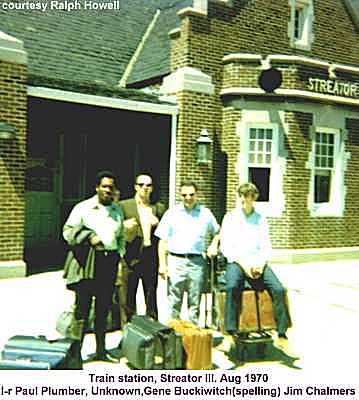
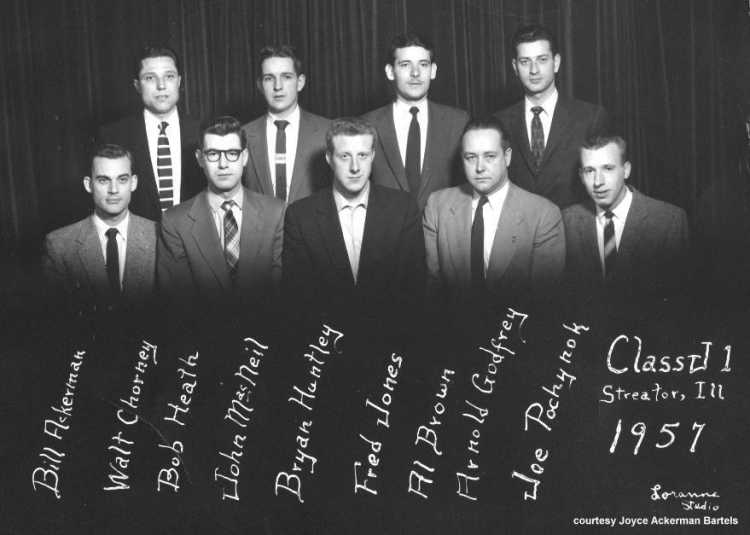
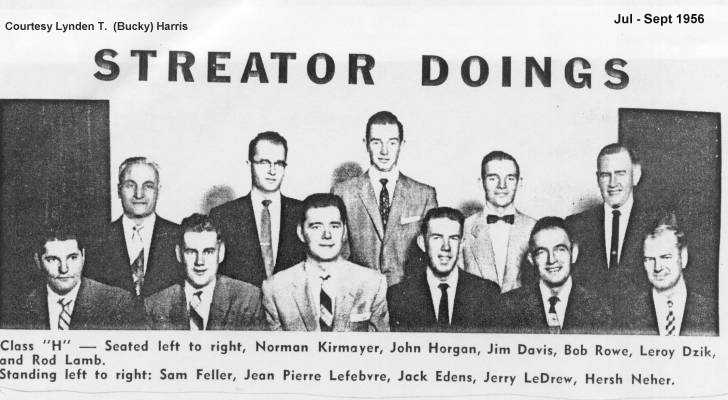
The Plumb Hotel – Where DEWLiner Trainees Lived.
By Clive Beckmann
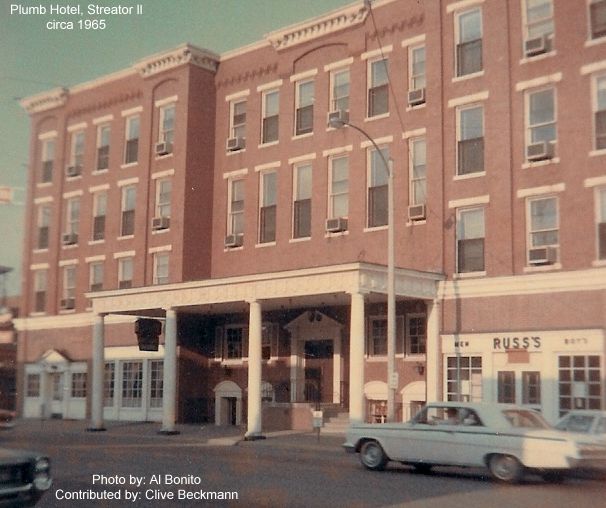
About the Plumb Hotel it is said that the notorious gangster Al Capone and his crowd frequently drove down from Chicago and would stay at the Plumb. It was the most elegant hotel in town at that time. So it is quite possible that in future years many Dewliners were billeted in a room used by ol’ Scarface himself! This is a bit of trivia of which probably 99.9% of Dewliners are unaware.
Clive Beckmann
Streator Revisited September 2002
By Ed Groelle
I had an opportunity a couple of days ago to swing by Streator and decided to look up the old training center. I had gone back in about 1992 and found it by looking for the antennas. I didn’t expect to see the dome anymore and I was correct. I had to stop a couple of elderly people and ask if they remembered the old site. Some thought it was completely demolished. I found some who remembered and they directed me to the general vicinity because to tell the truth I’d forgotten where it was. I couldn’t even remember which direction it was from Streator. For anyone interested it is south of Streator just off of Hwy 17. I went to the area and stopped at a farmhouse and the lady there thought it might be a few miles down the road. It was much further away from Streator than I had remembered. I was also hampered by corn growing everywhere which obstructed the view.
I finally saw the Comm dish out in a corn field and stopped to talk with a farmer who was painting a fence near the site. Turned out he was the owner of the farm and the training site. His father had owned the farm when the Dewline was in operation. He said the training center ceased operations in 1982 and he was allowed to buy it back with the buildings. He uses the compound for storage and now has turkeys inside the fence. In 1992 when I was there last time he had sheep grazing in the area. The geodetic radome was sold in 1986 and is now somewhere in Colorado.
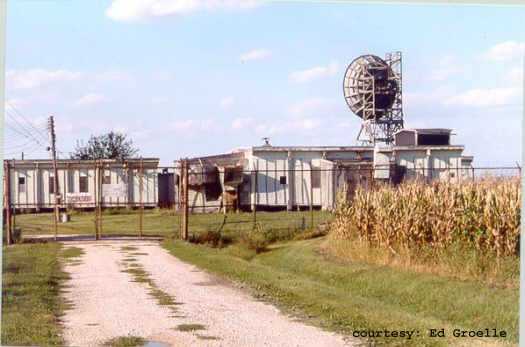
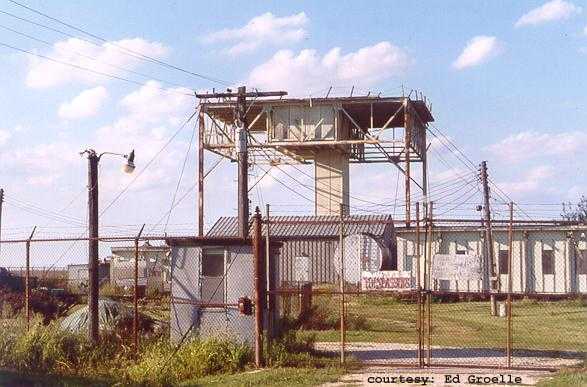
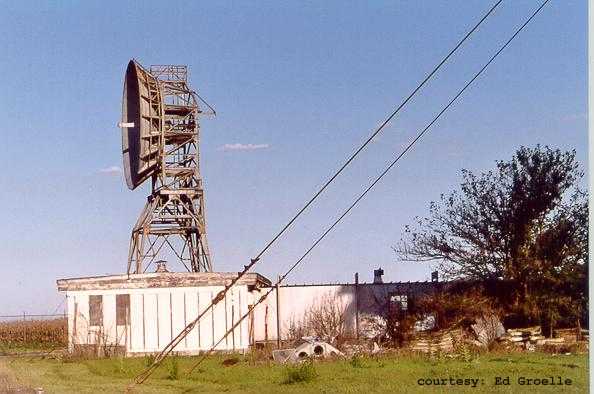
The Hotel pictures were taken in about ten years ago. You can see it has fallen on hard times. It was not much when we were billeted there. The Dewline people probably kept it alive way pass its sell date. I remember we used to call it the Tiltin’ Hilton. I don’t know if the building is still standing or not. I didn’t have time to look for it.
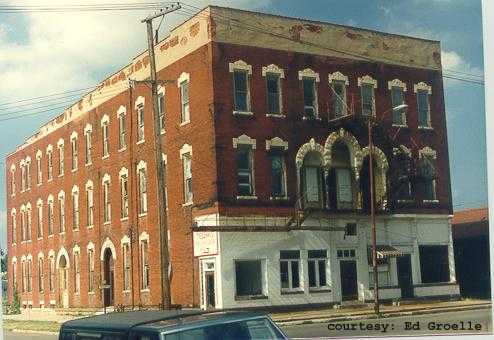
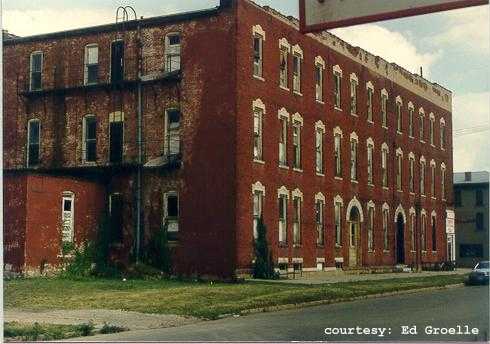
Streator looks rather rundown and doesn’t seem to have shared in the 90’s economy boom. Lots of businesses are boarded up. The people are unbelievably friendly as always. It was very pleasant to discover that had not changed. I went to a downtown restaurant in the hopes of getting some turtle which, as I recall, was on every diners menu at the time I was trained there. Found out it is only served on Friday nights and usually has to be ordered ahead. I did talk with the owners who did all the cooking from scratch, including the pies. Had one of the best restaurant meals I’ve had in a long time.
Ed Groelle
Links to additional photos and video of the Streator Training site.
Link to a vintage photo of the Streator Training site in 1968.
Link to more vintage photos of the closed Streator site.
Link to a short video of the Streator Training site.
Link to photos and a short video of the abandoned Streater IL DEWLine training site.
Link to a photo gallery of the abandoned Streater IL DEWLine training site.
Random Images of Streator
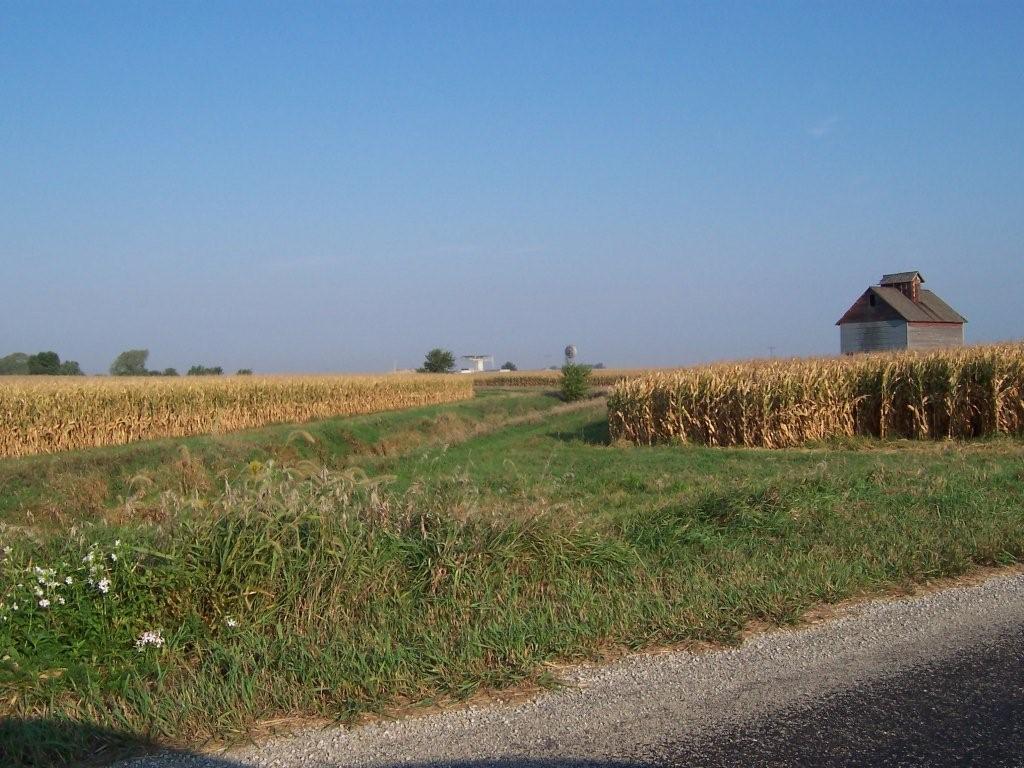
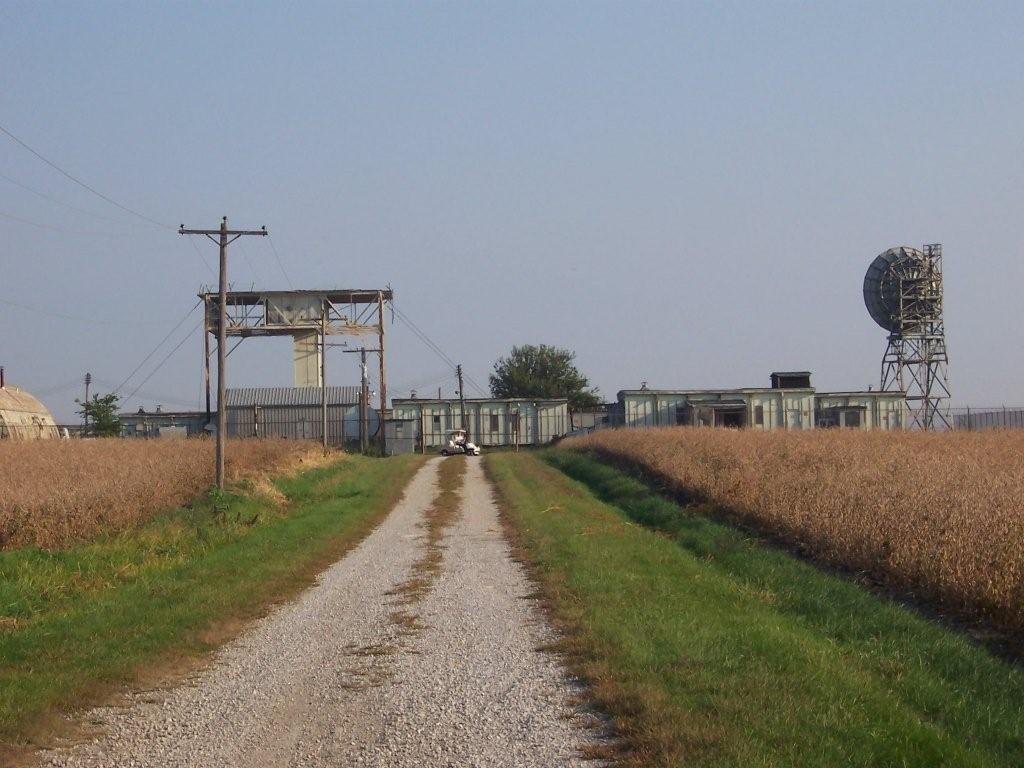
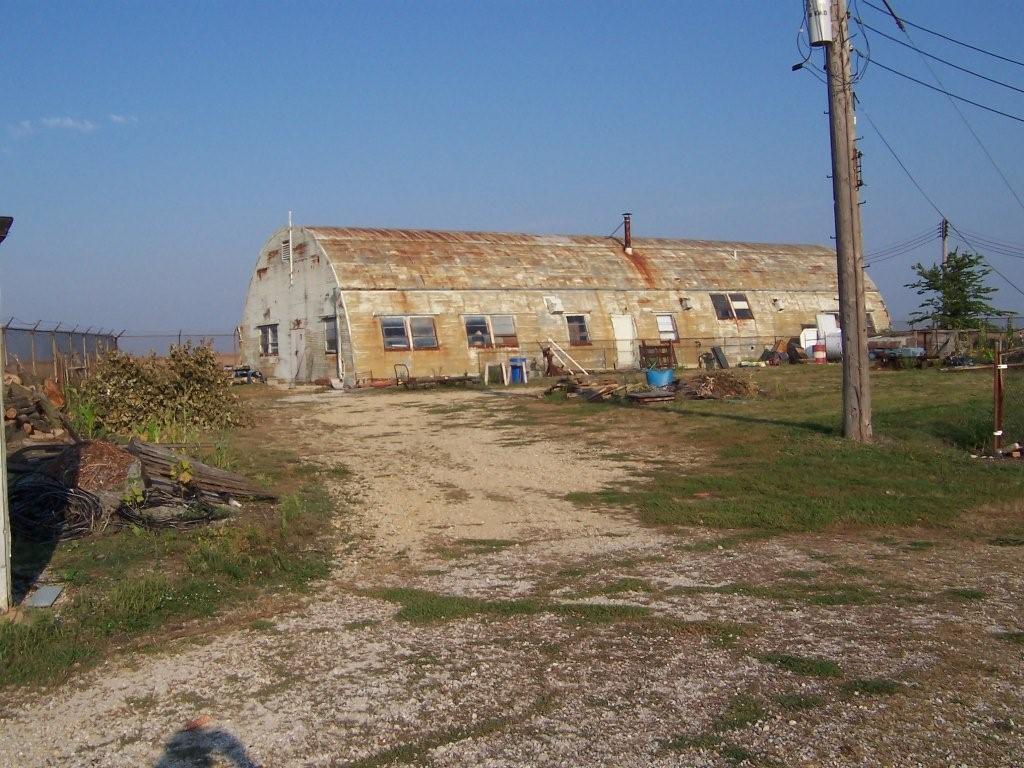
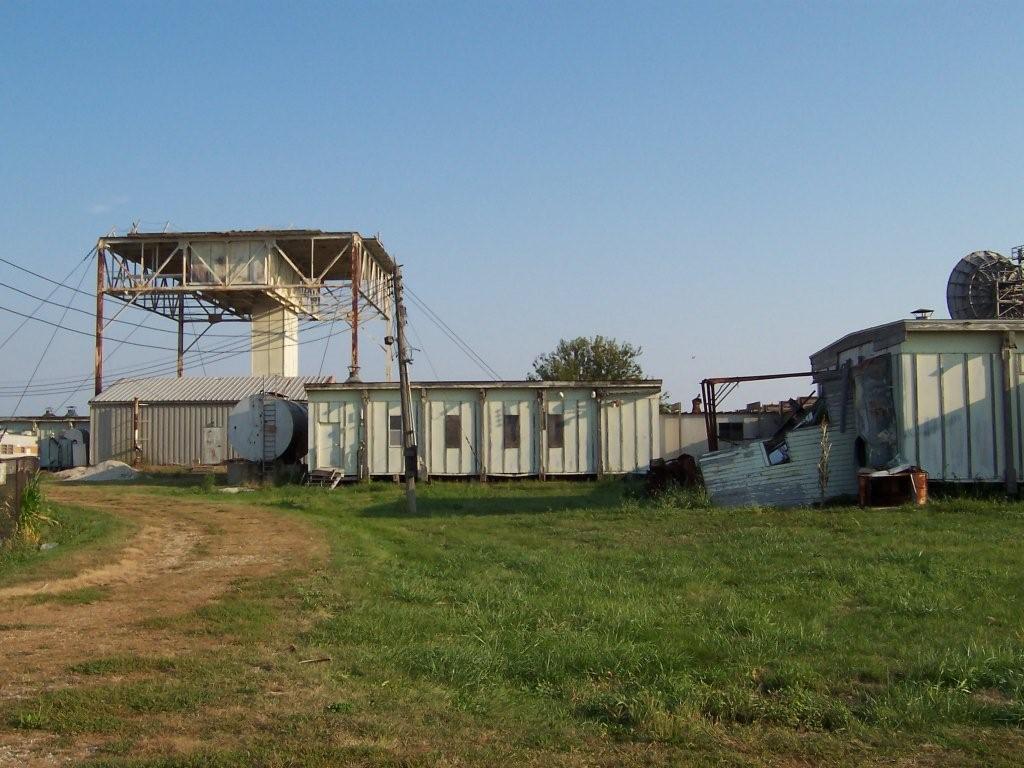
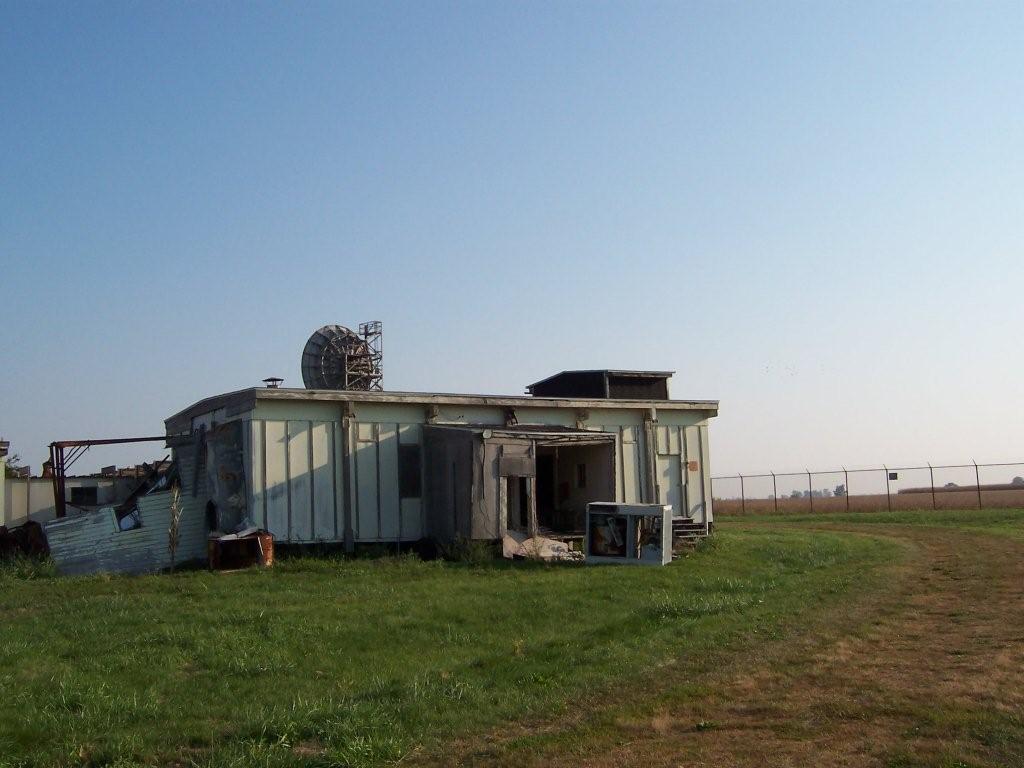
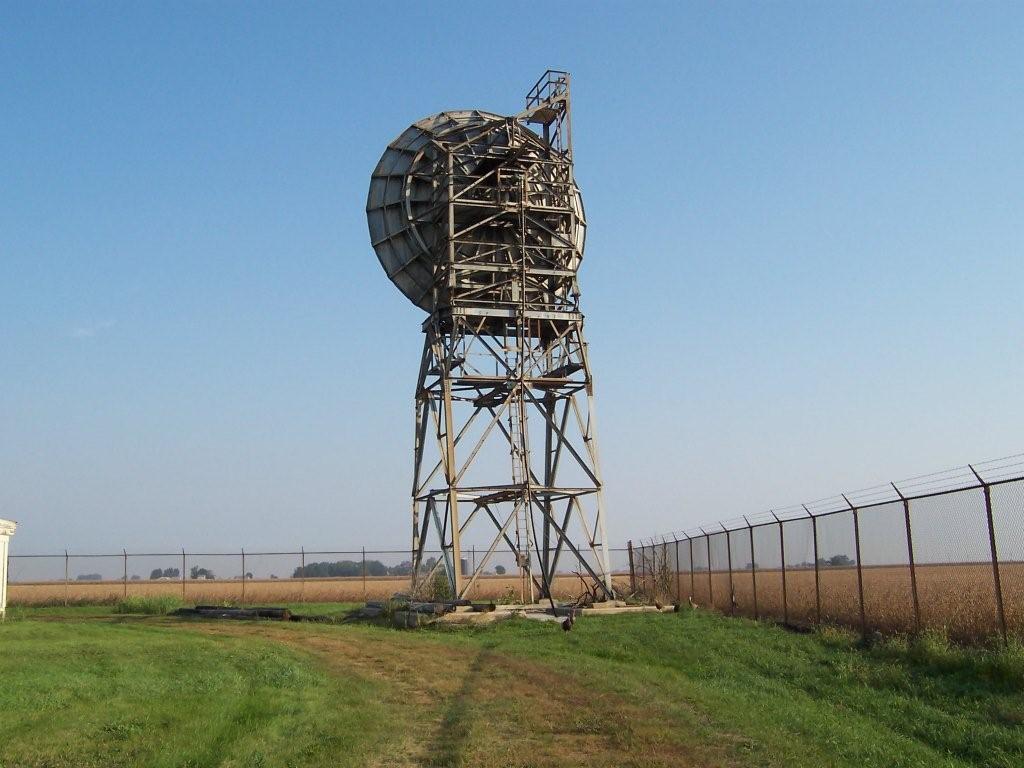
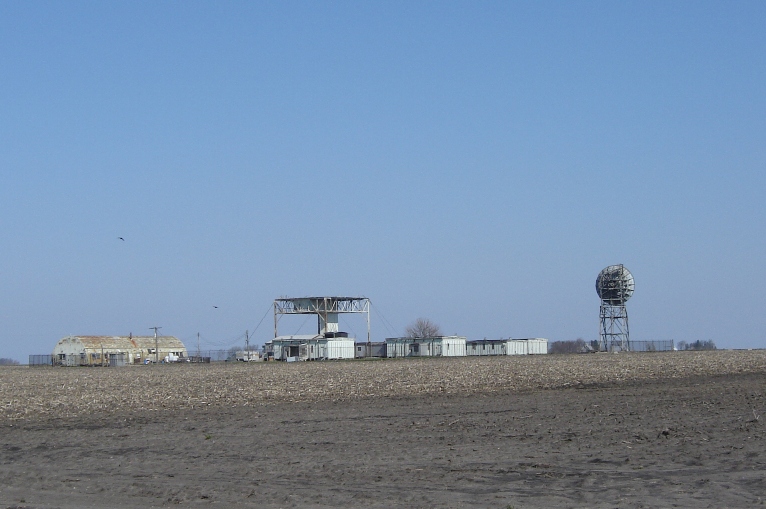
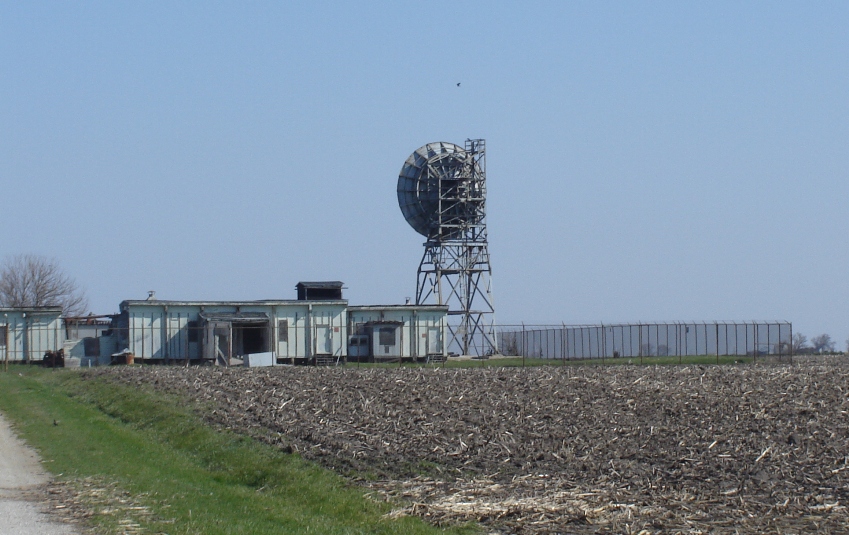
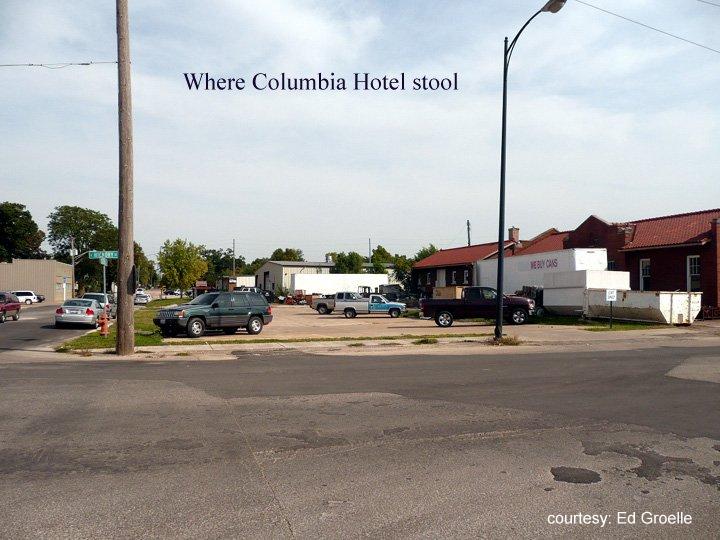
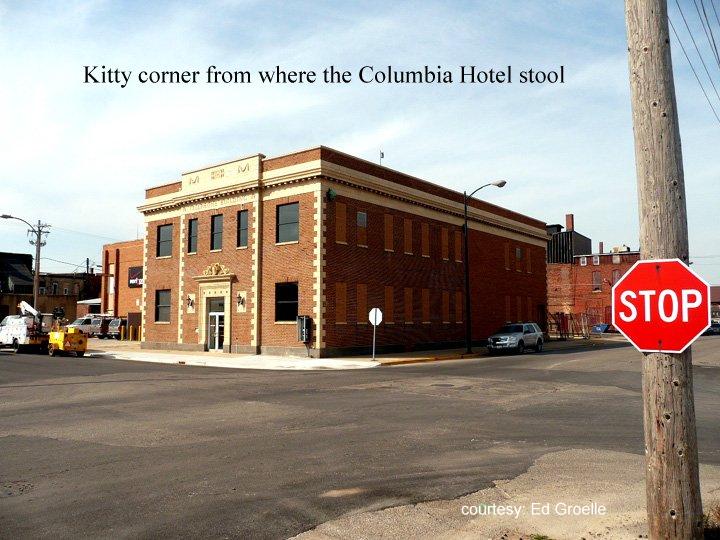
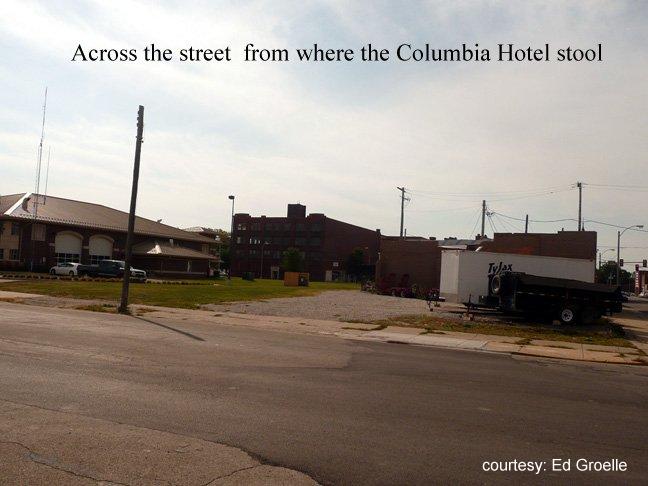
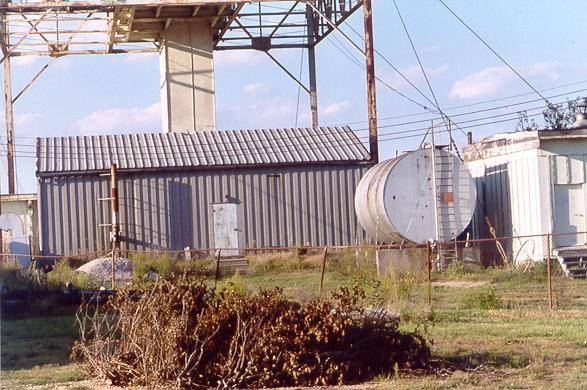
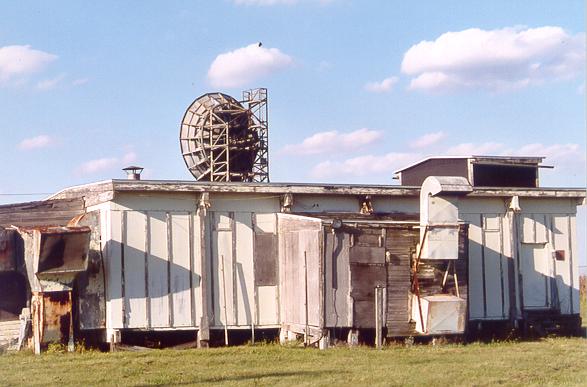
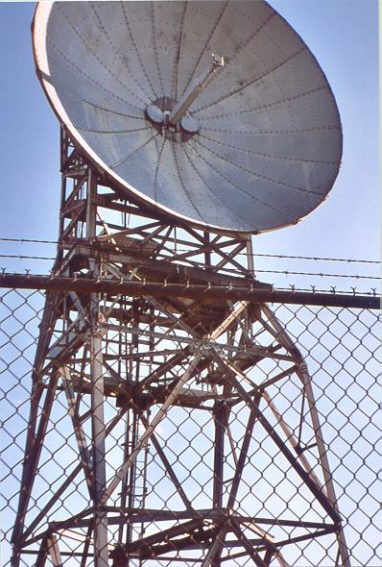
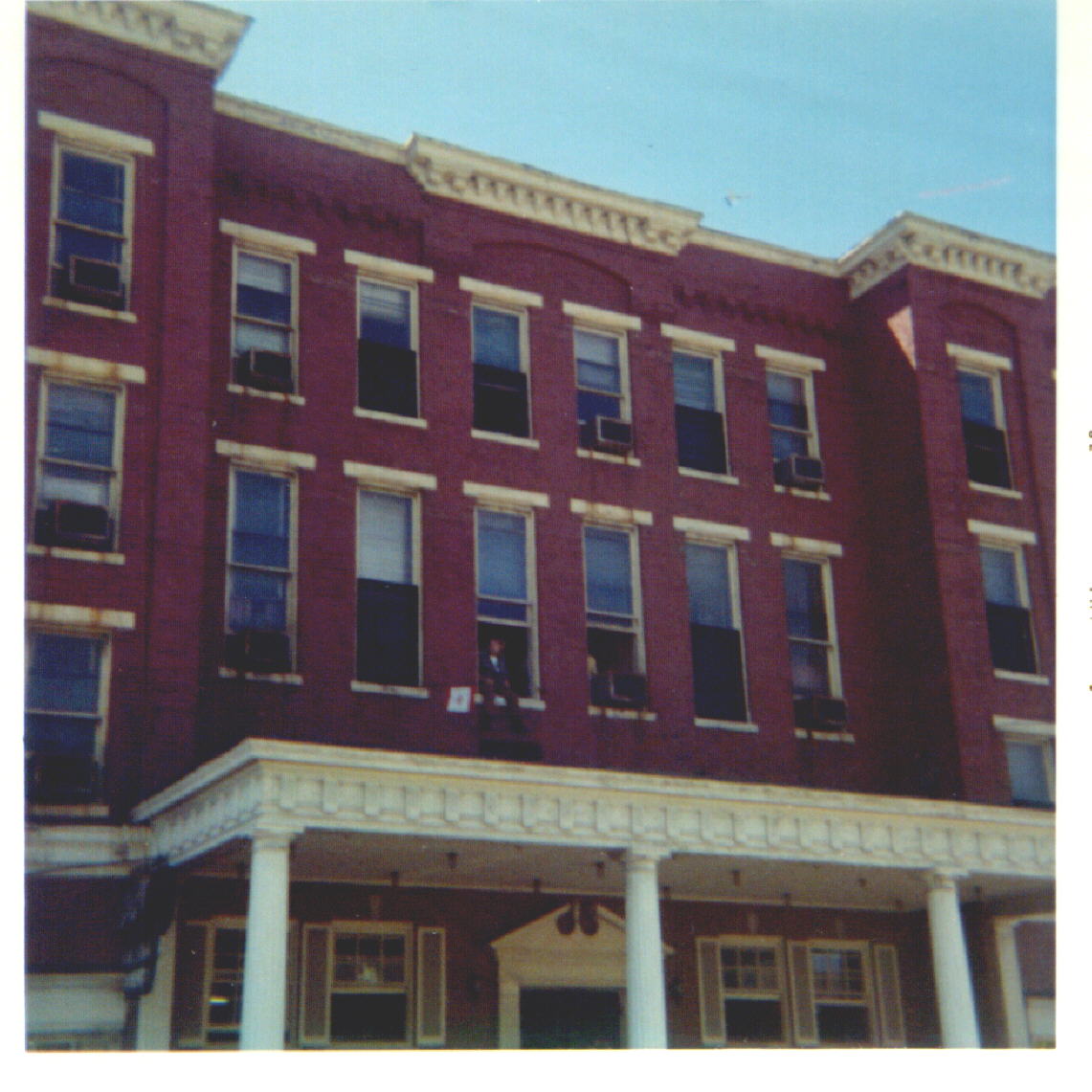
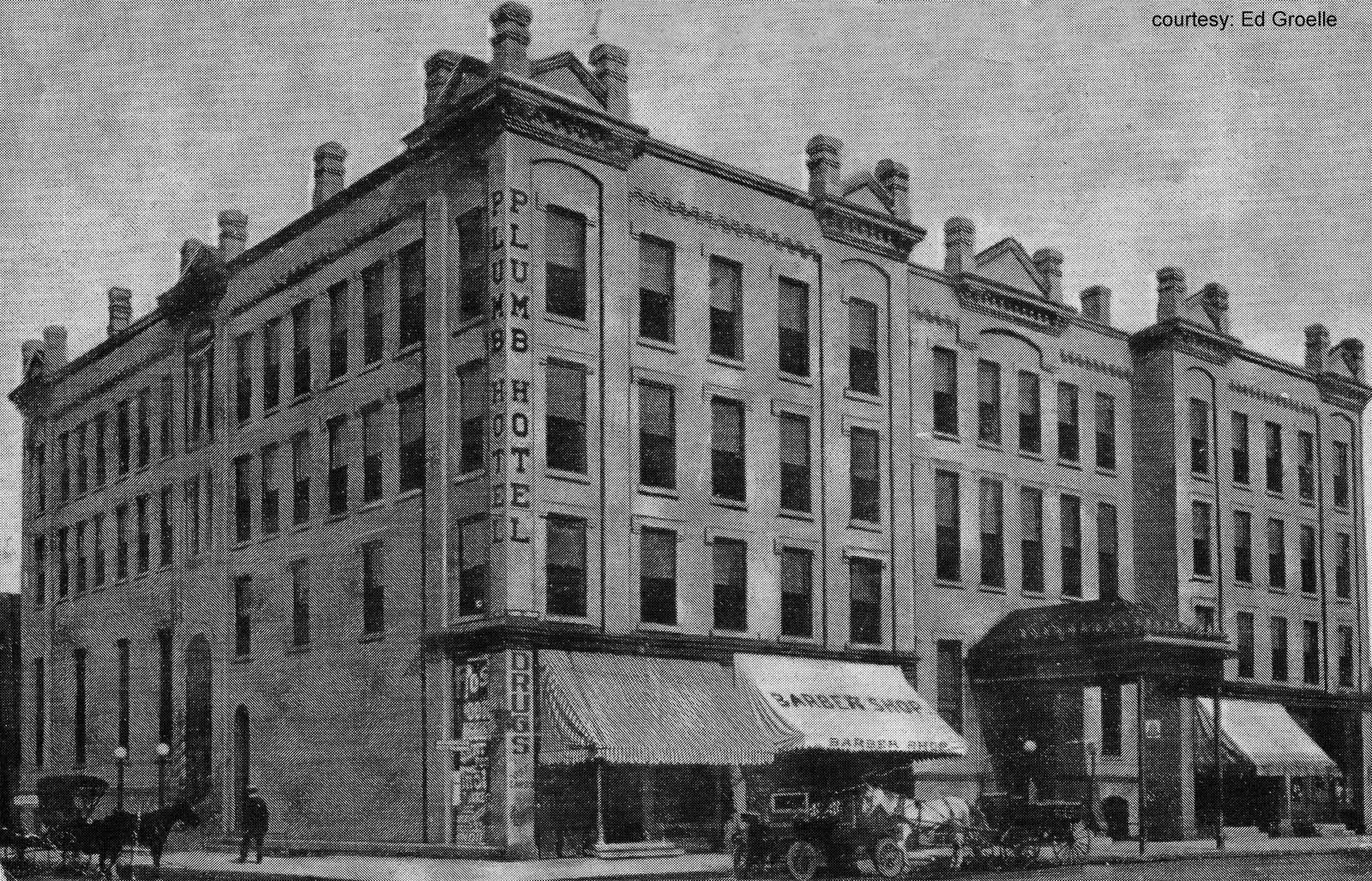
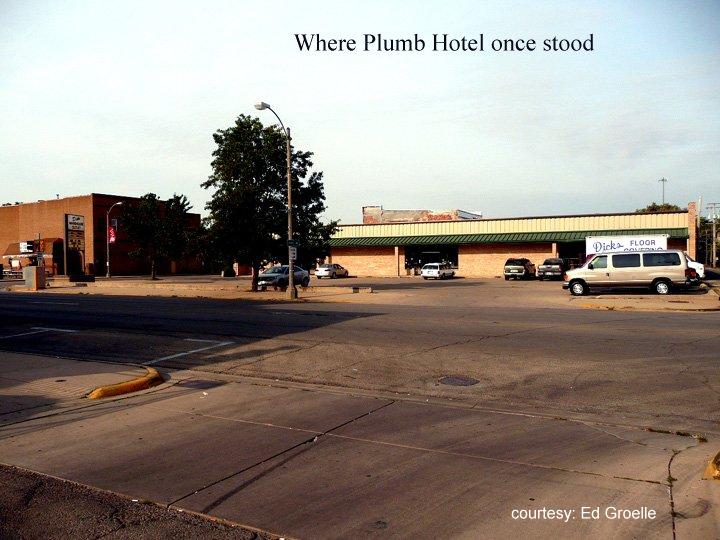

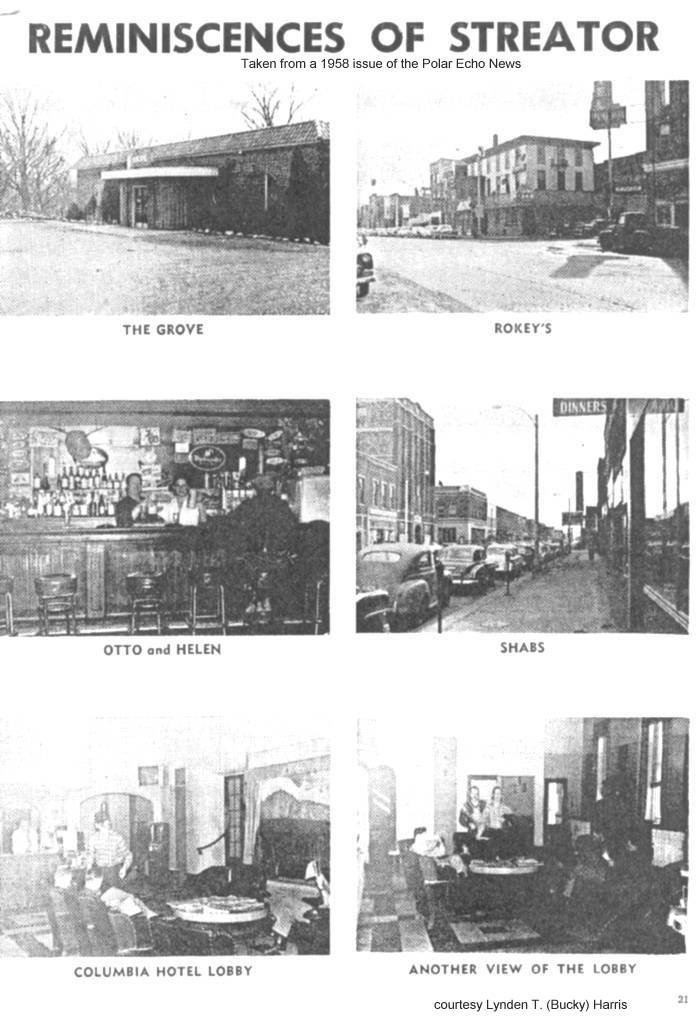
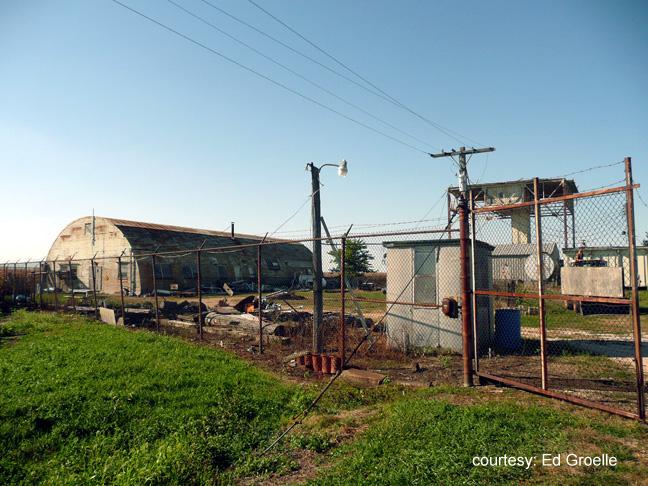
More Random Images of Streator
